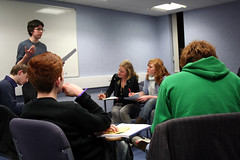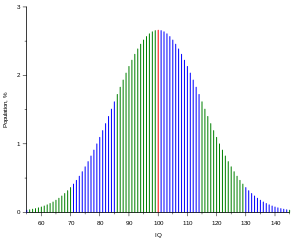You will find copies of the 6th edition in the library. A very useful brief guide to the referencing style is provided by the Library of the University of Waikato, New Zealand. You can also find information on APA style here.
Getting referencing style right means two things. Firstly, you have to get your in-text citation style right. This refers to the way you reference an article or book in the body of your essay, e.g. Jones (1990). Secondly, you have to make sure your reference list at the end of the essay is up to scratch. Here, you need to pay attention to issues such as: punctuation, indents and paragraph style, citing secondary sources, citing edited books and chapters in edited books, citing information gleaned from the web, etc. The rules may seem complex and long-winded, but they are extremely important. APA is a very widely used style and it's worth getting it right from the start.
You also need to check that everything you cite in the body of the essay appears in the reference list, and vice versa. Markers will be very sensitive to style errors (some psychologists even say that they think in APA style) so you need to check this aspect of your essay very carefully.
Remember that your word count usually excludes the reference list at the end, but of course you need to check your handbooks and other instructions to establish what applies for each particular piece of work.
As an exercise, see if you can spot the errors in the following paragraph (with thanks to Elizabeth Meins). I'll post answers in a later post.
Considerable evidence has now accrued to support Bowlby’s 1969, 1973, 1980 contention that attachment security is transmitted from one generation to the next. The link between autonomous parental attachment representations as assessed using the Adult Attachment Interview (AAI: George, Kaplan and Main, 1985) and a secure infant–parent attachment relationship has been found in various countries and in wide-ranging populations, (e.g. Aviezer et al., 1999, Dozier, Stovall, Albus and Bates, 2001, Fonagy, Steele & Steele, 1991, Main, Kaplan & Cassidy, 1985; Pederson, Gleason, Moran, & Bento, 1998; Steele, Steele, & Fonagy 1996; Ward & Carlson, 1995).




![Reblog this post [with Zemanta]](http://img.zemanta.com/reblog_e.png?x-id=76321e51-61c7-4f28-99a1-51cbbfd29681)

![Reblog this post [with Zemanta]](http://img.zemanta.com/reblog_e.png?x-id=8f27a03f-83ad-4dee-9480-11a8c91dedc9)


